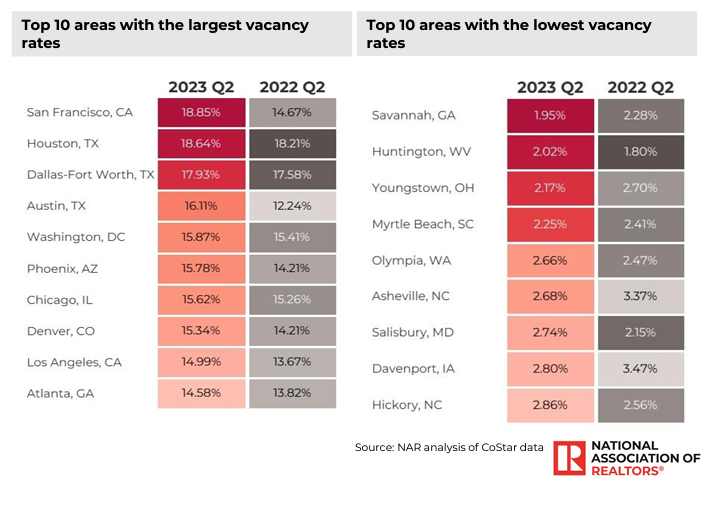Despite a lot of talk and mandates about moving back to the office, enterprises are more likely to adopt hybrid work plans over the next three years, according to a Bank of America survey. That data point is just one of many highlighting how the future of the office is still being debated.
The survey, Bank of America's 2023 Workplace Benefits Report, tackles a lot of workplace topics, but one big takeaway is that employers are likely to shift to more remote work. In fact, 55% of enterprises say they have an in-person work model, but over the next three years that percentage falls to 36%. Hybrid approaches are used by 39% of enterprises today but will surge to 47%. Seventeen percent of employers will go fully remote in the next three years.
There are multiple data points to consider for enterprises considering work models going forward.
- According to the Bank of America survey, 51% of rural employees, 41% of suburban workers and 49% of urban employees say inflation is making it difficult to make ends meet. Cutting commute costs will matter to these employees.
- Interest rates are higher, and companies will look to shed commercial lease obligations.
- The National Association of Realtors said first half office vacancies hit a new record high of 13.1% nationwide in the first half of 2023.

"With hybrid work arrangements allowing for a mix of in-person and remote work, a lot of office space is left empty. Meanwhile, in their effort to reduce their occupancy cost, tenants have decreased the average square footage per person leading to lower demand for space. The office sector is transforming to adapt to changing working arrangements and needs."
Chris Roeder, Executive Managing Director of Broker Lead, a corporate real estate advisor, said on DisrupTV that San Francisco will come back as startups return to the office. That productivity boost will lead to more office occupancy. Larger enterprises are slower to move back downtown, but AI startups are creating some optimism.
The big issue is whether companies can force employees back to the office. "I think there are some mandates but no enforcement," he said.
To get back to the office and revitalize downtowns, developers need to revamp the office experience, said Roeder.
"Most landlords downtown are talking about 'Ok, how do I create cold plunge saunas?'" said Roeder, who added that every amenity is being considered to make the office better than home. "How do you replace the kind of activity people get at home and then get more activation. All things are considered, and landlords are doing it. It's actually pretty fun to put these recommendations together."
Bottom line: The return to office theme has yet to be decided.
More research on the future of work:


